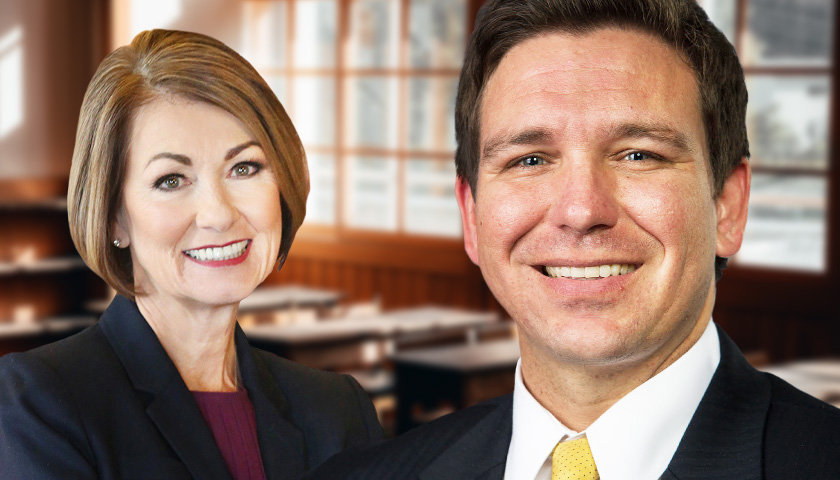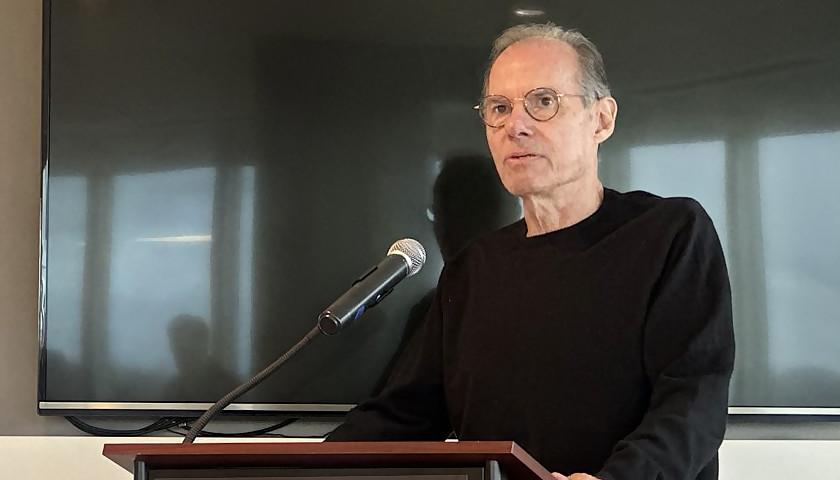by Reagan Reese
So far in 2023, six states signed school choice legislation into law, giving millions of families and their children education options, including access to taxpayer-funded vouchers.
Arkansas, Florida, Iowa, Utah, South Carolina and Oklahoma all signed legislation into law that makes at least some, if not all students within the states, eligible for taxpayer funded vouchers or a tax credit that can be used on education expenses such as private school tuition, textbooks and transportation. Under the legislation enacted in 2023, millions of students across the country are now able to attend schools outside their designated zip code or apply to receive funding in order to seek a private or a homeschool education.
“In 2023, we saw an unprecedented push by Republican lawmakers to make school choice a reality in states across the country,” Laura Zorc, director of education reform for Building Education For Students Together, an organization focused on increasing parental rights in education, told the Daily Caller News Foundation. “Thanks to the work of legislators and governors in Iowa and Florida, we will have thousands more students taking advantage of school choice in the USA. We have potential expansions lined up in North Carolina and Ohio, which would again add thousands more eligible students, with millions in total in school choice states.”
 The 2023 school choice push began in January when Republican Iowa Gov. Kim Reynolds signed a piece of legislation into law annually providing students who choose to attend a private school a voucher of $7,598, the average cost the state spends on a public school student, to cover education expenses.
The 2023 school choice push began in January when Republican Iowa Gov. Kim Reynolds signed a piece of legislation into law annually providing students who choose to attend a private school a voucher of $7,598, the average cost the state spends on a public school student, to cover education expenses.
Every kindergartener and every public school student, regardless of income, is eligible for the state program. By the third year of the program, every Iowa student will be eligible for the program. In 2022, Iowa had more than 517,000 students enrolled in its public school system, according to Ballotpedia.
Just days after Iowa, Republican Utah Gov. Spencer Cox signed universal school choice legislation into law, giving students scholarships of $8,000 to use on education related expenses such as private school tuition and curriculum materials. All Utah students are eligible for the program though in its first year the program is capped at $42 million and 5,000 participants.
On March 8, Republican Arkansas Gov. Sarah Sanders signed education legislation into law creating a universal school choice program by the 2025-2026 school year. All Arkansas students will be eligible for vouchers of $7,413 to be used on public school expenses. In 2022, the state had nearly 500,000 K-12 students, according to the Arkansas Department of Education.
In the same month, Republican Florida Gov. Ron DeSantis expanded upon his state’s school choice program, signing a law and making a universal program under which every family is eligible to receive up to $8,000 to cover education expenses outside of the public school system. The vouchers are distributed on a “priority” basis, with families of four making less than $51,000 annually receiving the funds first.
Under Florida’s previous school choice program, which was limited to low-income families and students with disabilities, 1.3 million students were receiving vouchers. In 2022, Florida had nearly 3 million students enrolled in just its public schools, according to Ballotpedia.
Republican Gov. Henry McMaster enacted a school choice program on May 4 that would make all students enrolled in a private or religious school eligible to receive a scholarship of $6,000 to spend on education related costs. By the 2026-2027 school year, any family with an annual income over $100,000 will be eligible for the vouchers.
On Thursday, Republican Oklahoma Gov. Kevin Stitt signed a piece of school choice legislation making all families eligible for some sort of tax credit ranging from $5,000 to $7,500 per student, based on their annual income, to fund students outside of the public school system.
“We have 700,000 kids in Oklahoma and in our school system and depending on how many accept or how many kind of decide that they want to go to a school outside of their zip code will determine how much of this is used,” Stitt told the DCNF. “The program’s capped at $250 million, but if more and more parents are using it, I know that future legislature will come in and raise that cap.”
Aside from vouchers, states have enacted legislation that give students the opportunity to attend a public school outside of their designated zip code; in West Virginia, Republican state Gov. Jim Justice signed a law in March that enables students to attend a better public school outside of their county. Similarly, Republican Montana Gov. Greg Gianforte signed legislation in May allowing families to attend public schools outside of their home district.
Despite making advances in many red states, school choice legislation is still stagnant in Texas and North Carolina; the Texas legislature is making a last attempt to approve a school voucher bill, though the regular session ends Monday, according to the Austin American-Statesman. In North Carolina, a piece of school choice legislation has the potential to be veto-proof as Democratic North Carolina Gov. Roy Cooper declares the public education system to be in a state of emergency because of voucher bills.
“Legislative Republicans propose pouring billions of dollars in taxpayer money into private schools that are unaccountable to the public and can decide which students they want to admit,” Cooper wrote in a press release. “Their plan would expand private school vouchers so anyone – even a millionaire – can get taxpayer money for their children’s private school tuition. By expanding voucher eligibility to any K-12 student, our public schools, especially schools in rural and poorer counties, will face steep funding cuts, leaving schools without the resources to maintain fixed costs and support students.”
Arkansas, Florida, Iowa, Utah, South Carolina and Oklahoma join several states that have already enacted school choice legislation making millions of students eligible for taxpayer vouchers; in 2021, West Virginia created a program to allow students in public schools to receive taxpayer-funded vouchers. Arizona’s school choice program established the widest system in the nation, as 1.1 million students are eligible for vouchers to use outside of the public school system.
“Parents in these programs will be able to select, along with their children, the school environment that best fits their needs,” Zorc told the DCNF. “Moms and Dads will be, for the first time in some cases, be empowered to be active participants in their children’s education, which has a proven record of raising educational outcomes. This is an undeniable good for both the family and the community, as well as the country as a whole.”
– – –
Reagan Reese is a reporter at Daily Caller News Foundation.
Photo “Ron DeSantis” by Federal Government of the United States. Photo “Kim Reynolds” by Governor Kim Reynolds. Background Photo “Classroom” by 2y.kang.








